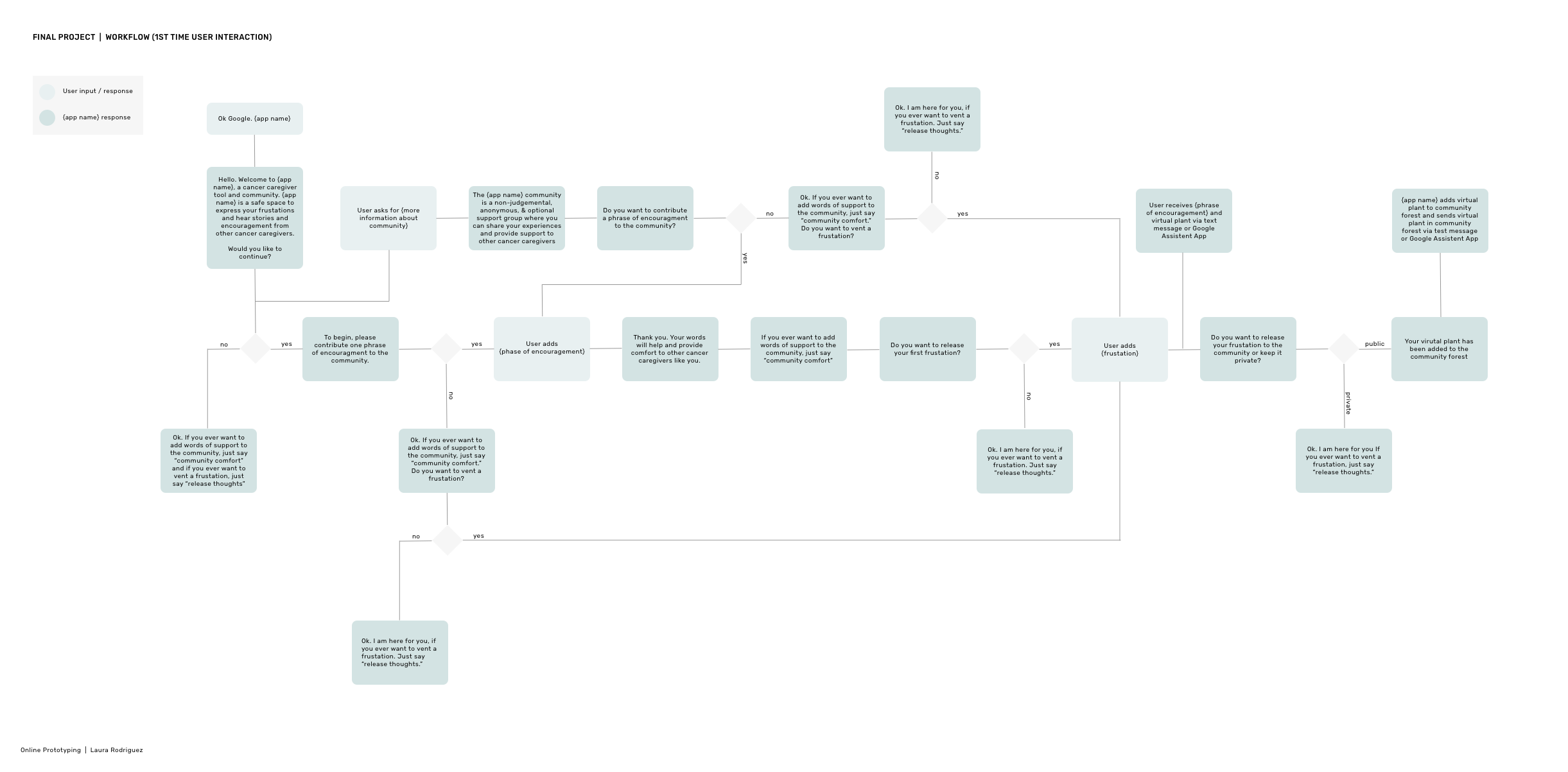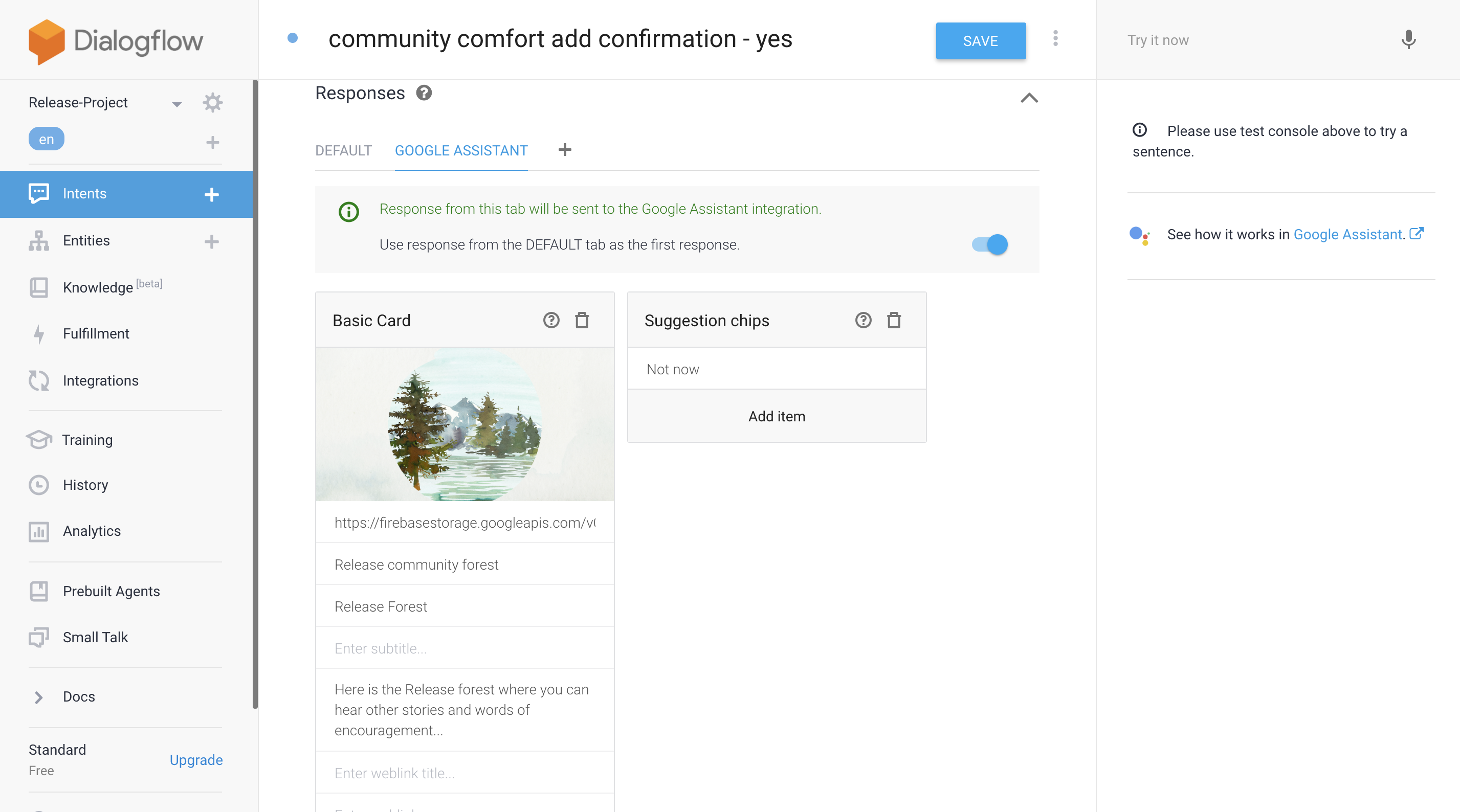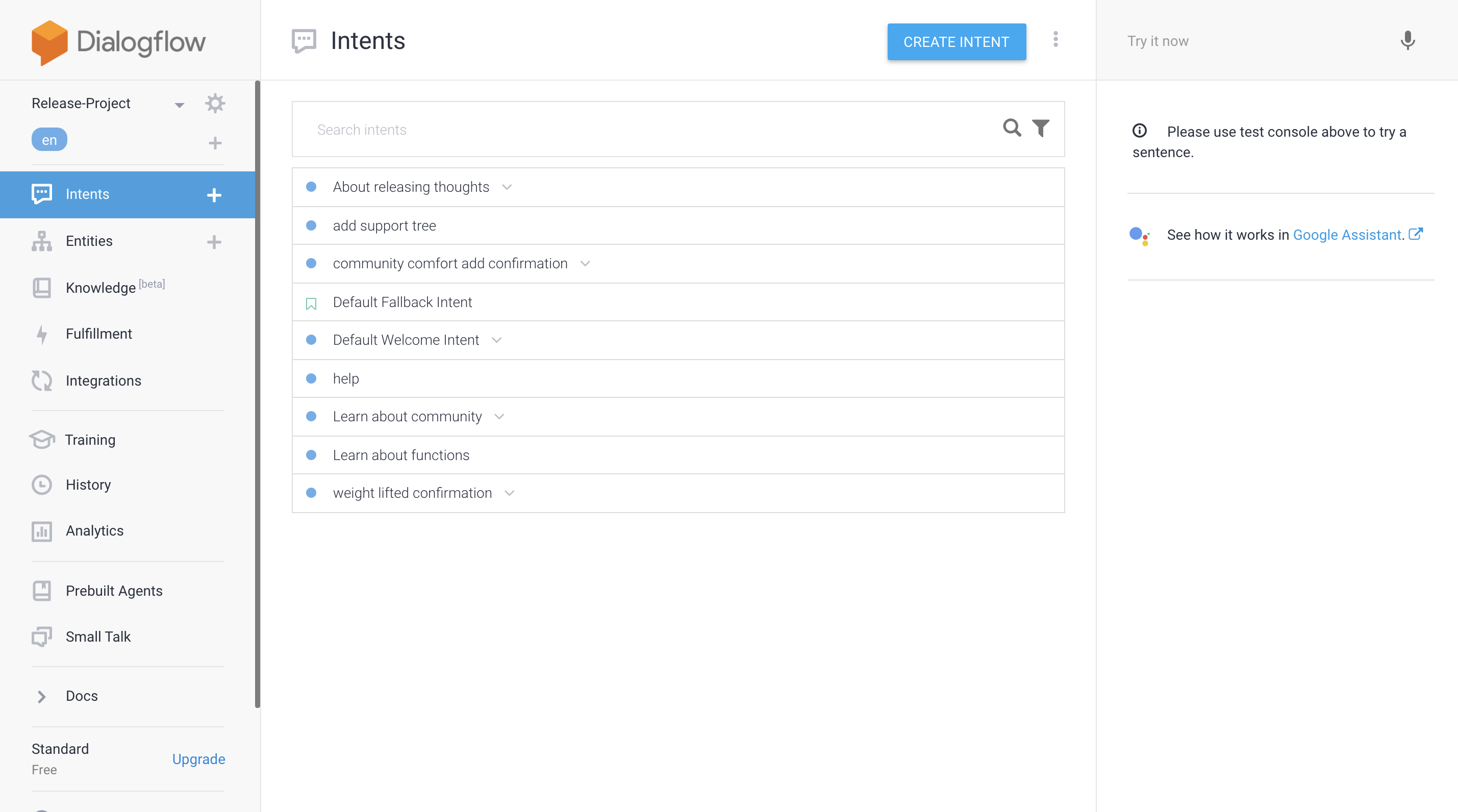Process
For this project, I knew I wanted to work with Google Assistant because I own a Google Home Mini and it would allow me to easily test my concept. I began with the intention of developing a VUI because I thought that speech would make it easier for the user to express their emotions in a natural way. I imagined that the user would be able to speak their thoughts to the Google Home Mini and then receive the visual feedback on their phone through the Google Assistant app. So I began developing the dialog with that intention, however, I decided to shift my focus to the text-based version through Google Assistant because I wanted to play with the rich messages, such as the cards and suggestion chips, and explore how they could help inform the user through the conversation.
I decided to focus on developing the workflow for the first time user because it would force me to think out the functions of the application because I would have to integrate the explanation of the functions in my conversation flow. I also took into account how the chatbot would respond if the user said yes vs no to a question and how the user would direct the conversational flow for the chatbot.
When I first began using dialog flow, I had run into the difficulty of dealing with yes or no answers. I found that a lot of my conversation relied on yes or no responses and that the chatbot would get confused and send the wrong response. I resolved this problem by using the follow-up intents. I also had the problem of anticipating what a user might respond with and I wanted to explore how I might direct the conversation. I worked with using the suggestion chips as a method to direct the conversation and make it easier for the user to understand how they might respond.


